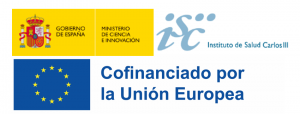PAtient-Centred Outcomes and Resource Utilisation after noncardiac Surgery-S (Spain) (PACORUS-S)
Project description:
Objectives:
1) to validate (construct [convergent] validity) DAOH at 30, 90, and 365 days after noncardiac surgery in terms of preoperative risk factors/procedural risk and postoperative complications in different health care systems;
2) to explore the impact of the area of residency (urban vs rural) and socioeconomic status on DAOH in different healthcare systems;
3) To quantify in- and out-of-hospital resource utilization during the first year after noncardiac surgery in different health care systems;
4) to evaluate the concurrent and predictive validity of DAOH as a measure of resource utilization after surgery at 30 and 365 days in various health care systems;
5) to develop a user-friendly web application to report predictions of in- and out-hospital resource utilization during the first year after noncardiac surgery based on DAOH.
Methodology:
Design:
A retrospective multicenter administrative cohort study involving three regions of Spain, Catalonia, Navarra, and Basque Country, in patients aged ≥50 years submitted to noncardiac, non-neurosurgical, inpatient surgery (thoracic, vascular, abdominal, urinary tract, or orthopaedic/trauma and insured by the relevant organization at least in the four quarters prior to and 4 quarters after the quarter of the index procedure or until death.
The study will provide a detailed methods description, and present the results both as costs and units of resource utilization.
The expected impact of the results:
The study is designed to generate evidence on the outcomes of surgery, as well as to address the question of how to assess outcomes after non-cardiac surgery.
If the expected results are confirmed, the study will contribute to establishing an efficient, integrative, patient-centred and easy-to-collect endpoint for future clinical trials in perioperative medicine and also an indicator for the assessment and monitoring of the quality of perioperative care provided in hospitals.
The results will allow further validation of the indicator in terms of perioperative risk and postoperative complications, within an extensive and varied sample of surgical patients.
Funding body:
This project is co-financed by Carlos III Health Institute, European Regional Development Fund (ERDF)-”A way to make Europe”.

